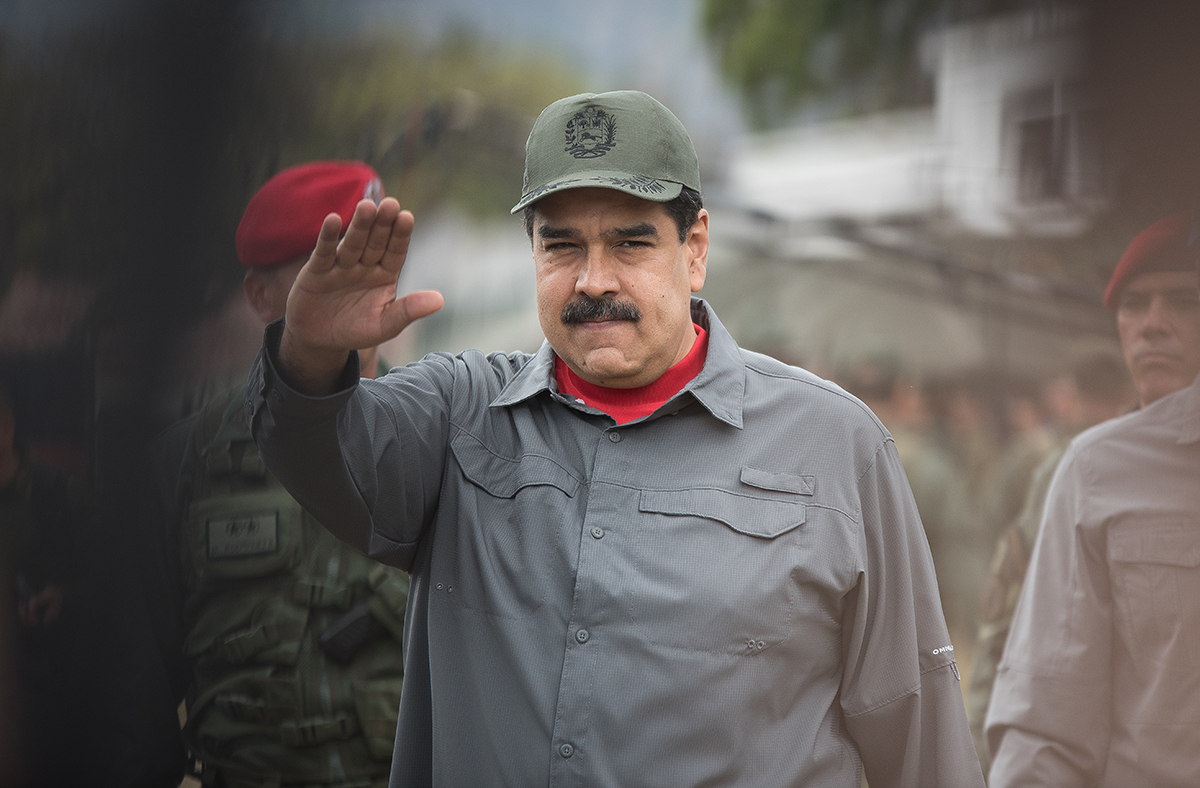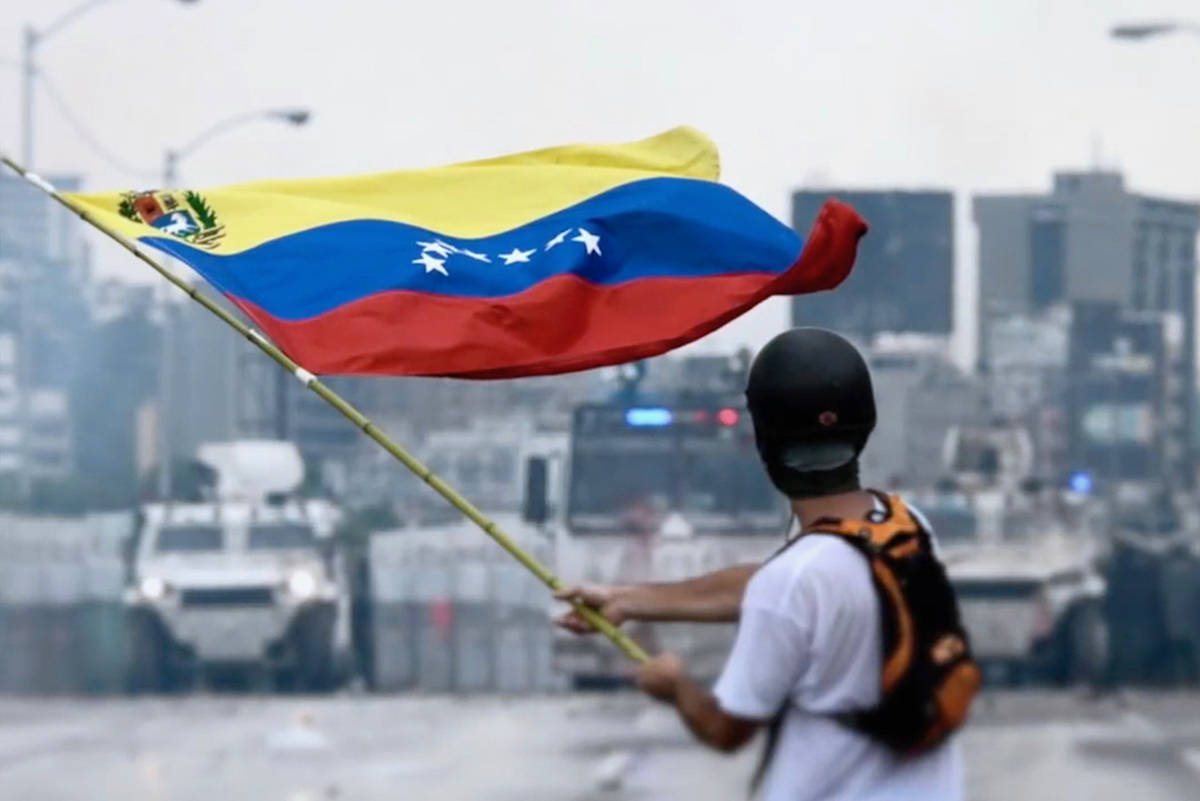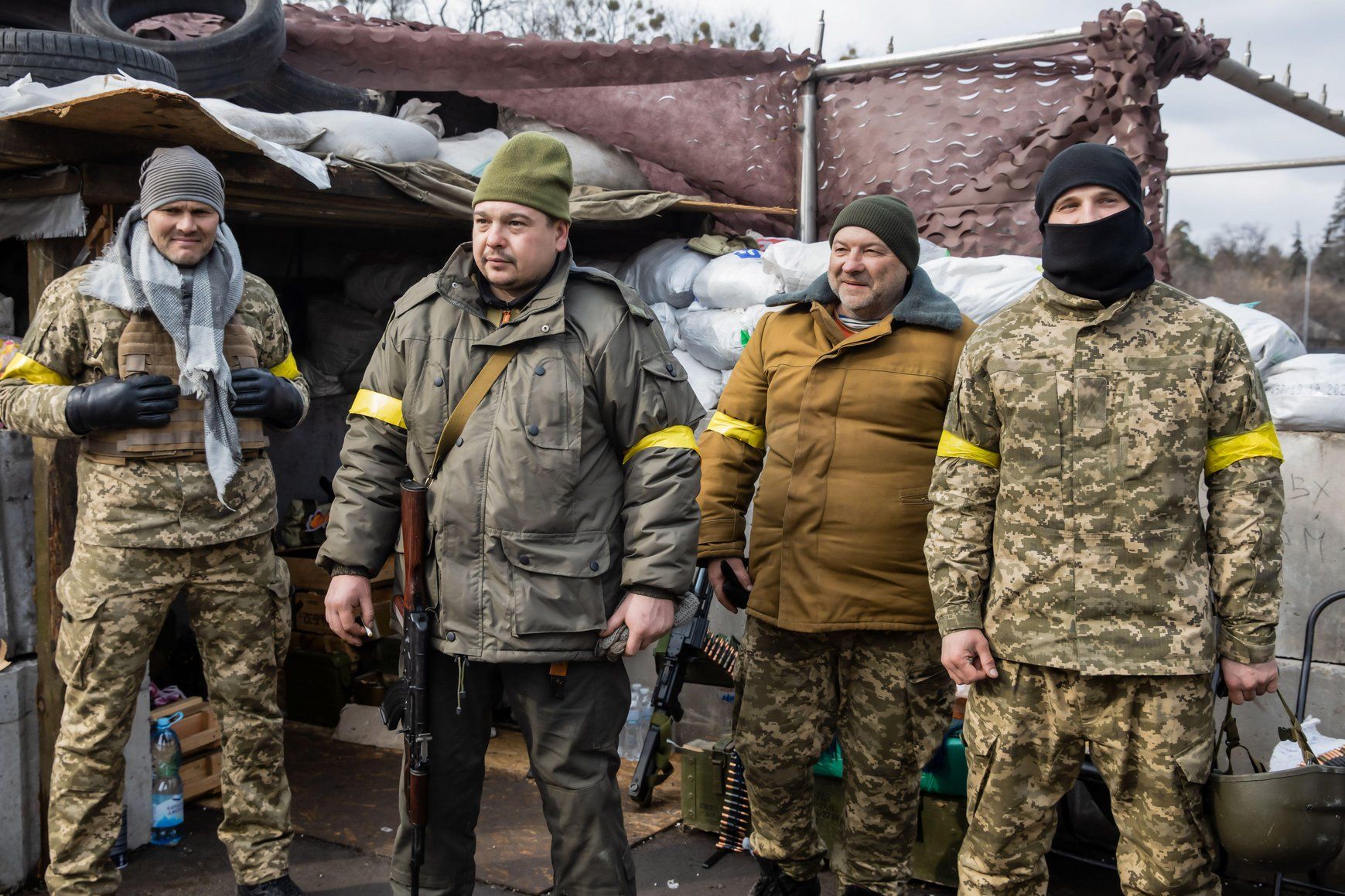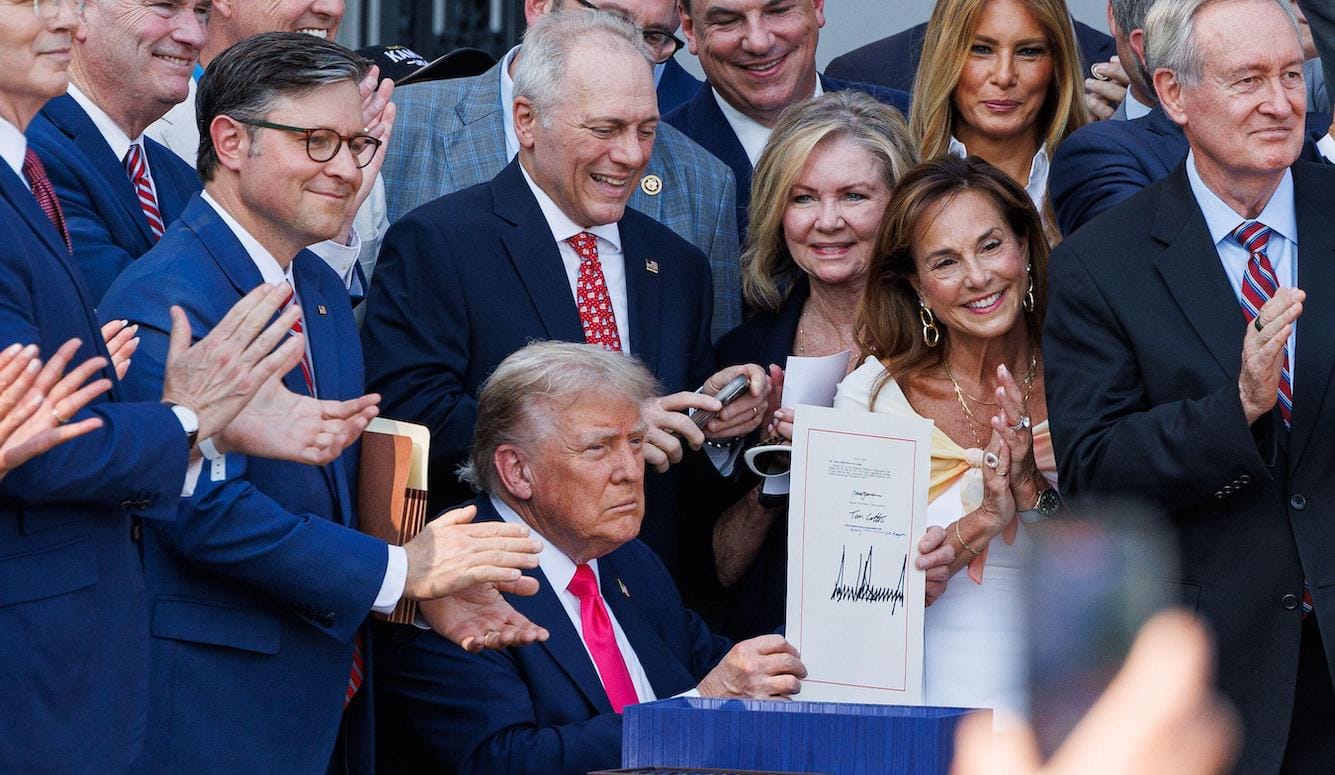political science
Resolving the Venezuela Crisis: Is There a Case for Outside Military Intervention?
Venezuelans have been voting with their feet to escape the ruin the regime has inflicted on them.

For the past four years, in plain sight of the world’s media, and just a few hours by plane from the world’s most powerful democracy, a criminal regime has been inflicting a humanitarian catastrophe on its own people, provoking widespread hunger and impoverishment, the spread of disease and death, and an exodus of Biblical proportions to neighboring countriesthat threatens regional stability. The national health system has collapsed, fostering the outbreak of infectious diseases, which, given the flight of millions of the country’s citizens abroad, poses a growing health risk to the continent. (Polio, long ago eradicated in the country, has returned.) The same regime’s most senior members (as well as those of lower rank) have been credibly accused of narcotics trafficking and personally profiting therefrom. Even relatives of the president have been involved and given long prison sentences. The regime also commands a police force implicated not only in the drug trade, but in kidnapping, extortion, and corruption. Not surprisingly, the population it is supposed to protect is left subject to the highest homicide rate anywhere. The regime’s currency is undergoing an annual inflation rate nearing a million percent (according to the IMF) and is plunging in value, resulting in average monthly salaries that equal roughly two dollars; and the number of its citizens living in extreme poverty has jumped from 24 percent in 2014 to more than 60 percent by the end of 2017. The country happens to have the largest oil reserves on the planet, but production facilities are falling apart, and output is plummeting. Much of whatever revenue does come of it is ransacked by the ruling elite.
I’m talking about Venezuela, of course, formerly one of South America’s wealthiest, most prosperous countries, but now being reduced to a Hobbesian state of nature. Venezuela’s de facto disintegration stems directly from the Maduro regime’s usurpation of all political power, and originated with the probably fixed presidential polls of 2013 that saw a Hugo Chávez crony and former bus driver, Nicolás Maduro, barely defeat Henrique Capriles, one of Venezuela’s most successful governors.
Soon after the election, in 2014, anti-government demonstrations broke out across the land. Maduro responded by first imprisoning, and eventually placing under house arrest, the protesters’ leader, Venezuela’s opposition leader, Leopoldo López (of the Voluntad Popular party). It also began incarcerating hundreds of anti-regime activists (often subjecting them to torture), using administrative means to intimidate voters, and strategically distributing, in return for votes, ever scarcer food supplies, thereby weaponizing hunger. (Malnutrition is widespread, especially among children; over the past three years the average Venezuelan has lost nineteen pounds.)
Naturally, none of this went down well with Venezuelans, so the Maduro regime has ensured they will have no say in their political future. Last year, the regime supplanted the opposition-controlled National Assembly with a rigged body known as the Constituent Assembly, and, in May 2018, held “elections” that reinstated Maduro. The United Nations and the European Union refused to accept them as valid; and the Organization of American States (OAS) termed them a “farce,” lamenting “an infamous day for democracy in the Americas.” Only a handful of countries (including Russia, North Korea, and a few Caribbean states reliant on Venezuela for oil), recognized the polls. Maduro remains wildly unpopular — with an apparent approval rating of, as of July, 24.3 percent. Accordingly, the internet abounds with Venezuelans’ sarcastic, insulting jokes about him — a popular meme puns his surname with burro, or donkey. (For a belly laugh, Google images for “Maburro.”)
The regime doesn’t take kindly to such humor, though.
Venezuelans have been voting with their feet to escape the ruin the regime has inflicted on them. The economy contracted by 16.5 percent in 2016 and 13.2 percent the next year; since 2013, it has shrunk by almost 50 percent. Although hunger is rampant and hospitals lack medicines, the Maduro regime has refused all humanitarian aid. Desperate, famished Venezuelans — some 2.3 million of them, so far, according to the UN — have fled abroad, mostly on foot, to Colombia, Ecuador, Peru, Brazil, and other places. The surging refugee crisis — unprecedented in Latin America — has provoked alarm and even violence in some of the host countries, which have begun imposing restrictions on entrants to stem the flow. The head of the Organization for Migration has warned of an approaching “crisis moment.” Maduro’s response to the mass outflow of his citizens? Scorn and derision. For him and his cronies, the feast must go on — Habano cigars and all.

With the Venezuela crisis worsening, the Trump administration has let it be known that “all options are on the table;” and Trump himself has mooted invading the country. The Trump administration had secretly been in touch with dissident officers in the Venezuelan armed forces about launching a coup, but the regime caught on and arrested them. Most recently, Luis Almagro, the Secretary General of the OAS, broached the idea of a foreign military intervention against the Maduro government, which he accused of crimes against humanity. The United States and the EU have imposed rafts of onerous sanctions, but with no discernible effect on the regime’s behavior. The latest punitive measures, adopted by the US at the end of September, target Maduro, his wife (a former speaker of the National Assembly and a prominent politician in her own right) and members of his inner circle. Imposing a blockade on Venezuela’s export of oil — the government’s main source of revenue and hard currency — might force a change in leadership, but only after significantly worsening life for the masses of already hunger-stricken Venezuelans.
So, what is to be done? Given that the Maduro regime has neutered the opposition and rendered impossible change via the ballot box, and in view of the stakes, both for the Venezuelan people and the region, outside efforts, including US efforts, to bring about a change of government in Venezuela must continue — despite the long, problematic history of American meddling in Latin American politics. (Think Chile in 1973 and the Bay of Pigs invasion of 1961, for example.) For starters, the US and other countries could offer Maduro and his accomplices, in return for their abandoning power, safe passage to a third country (say, Russia or China), as well as immunity from prosecution. Such an offer would seem immensely unjust, given the scale of the Maduro regime’s crimes, but this might be the price to pay for the peaceful removal of the government.
What if these efforts fail? Does a legal basis exist for outside military action to oust the Maduro regime? Yes. The doctrine of “Responsibility to Protect” (R2P), adopted by the UN (and approved by Venezuela) in 2005, provides it. The principle is simple: sovereign states have a duty to safeguard their populations from, among other things, crimes against humanity and genocide — and a government’s rejecting humanitarian aid and leaving its people to starve and die without medical care certainly constitutes the former, and possibly the latter. Other factors buttressing the case for intervention include the breakdown of the Venezuelan state, its involvement in narcotics trafficking, and its inability to confront the raging epidemic of violent crime.
Citing R2P, the UN has authorized military action a number of times in Africa and the Middle East, but with a spectacularly bad result in Libya in 2011 — the descent of that country into anarchy and the dramatic outbreak of the Mediterranean refugee crisis. In the case of Venezuela, however, Russian and Chinese vetoes would surely doom any R2P resolution concerning Venezuela in the Security Council.

But the Security Council isn’t the only body that could act. The O.A.S. could, and might be gearing up to do so. On September 17, Almagro tweeted that “millions of people have already been murdered, tortured, and displaced in Venezuela. The responsibility to protect is not to count the dead” — an obvious reference to R2P. (The International Criminal Court, at the behest of six Latin American countries, is already investigating human rights abuses in Venezuela.) Colombia has special incentive to intervene, since Venezuela has permitted two Marxist guerilla organizations — the FARC and the ELN — to launch attacks against Colombia from its territory. (It should be noted that Colombia also has a large, battle-hardened, well-equipped army, and could lead any intervention.) If Colombian president Ivan Duque has, at least as of last summer, publicly rejected the idea of using military force to topple Maduro, his government, and that of Canada, recently abstained from a Lima Group proclamation opposing the use of military force against Caracas.
Could Maduro effectively fight back? The country has a 438,000-strong “Bolivarian militia” (possibly equipped with Russian shoulder-carried Igla anti-aircraft missiles), that could assist Venezuela’s regular army, which has more than 300,000 troops. Armed, pro-regime motorcycle gangs known as Colectivos patrol barrios and suppress dissent, but they could also attack invaders. Military planners would have to take all this into account; but it should be remembered that the Venezuelan military has not seen action (and that, low-scale) since the 1960s; and its soldiers have been increasingly going hungry, deserting, and being arrested for treason or rebellion. Under fire from forces led by, say, the Colombian army, which would surely receive intelligence support (if not more) from the US, how long would they hold out? How many would choose to fight and die for the wildly unpopular Maduro?
Once Maduro and his henchmen have been removed, the country stabilized with an international coalition of forces occupying key government and military facilities, political prisoners freed (including, obviously, Leopoldo López), and humanitarian aid permitted entry, the same coalition could oversee the formation of a transition government. This government could declare the reestablishment of constitutional order and the holding of free and fair elections within, say, four to six months — elections in which all parties, including the current ruling United Socialist Party of Venezuela, could take part.
The intervention proposed above would carry risks. But they must be weighed against the certain consequences for Venezuelans of doing nothing: more disease, death, political oppression and flight abroad.
Venezuelans deserve better, but this time, they need help to get it. Providing assistance would be the humane — and just — thing to do.






